
How big-bang economic plan and political turmoil sank Liz Truss
Yet that period saw an historic economic gamble, an almost unthinkable number of U-turns and the junking of an entire political programme. It's been short. But not simple.
Over the summer, it all felt very different. As we travelled around the UK for hustings, it was clear Ms Truss was highly popular with Conservative members.
Her promises to slash tax and govern as a Conservative were exactly what they wanted to hear. She wasn't a flawless media performer, but she knew how to work a friendly crowd.
There were warnings from former Chancellor Rishi Sunak and his supporters that her economic plans were risky and could backfire. Some said it would be electoral suicide. But they lost the argument in the Conservative Party.
With victory imminent, along with her close friend and political ally Kwasi Kwarteng, Ms Truss got to work on formulating a plan for power which would be radical and bold.
They decided they had to rip up the rules, which had been followed by previous Tory prime ministers. The economic "orthodoxy" was to go out the window. The pair prepared what aides called a "big bang" of measures - to hit the ground running.
"We are not going to be tinkering at the edges," a senior figure in Team Truss boasted.
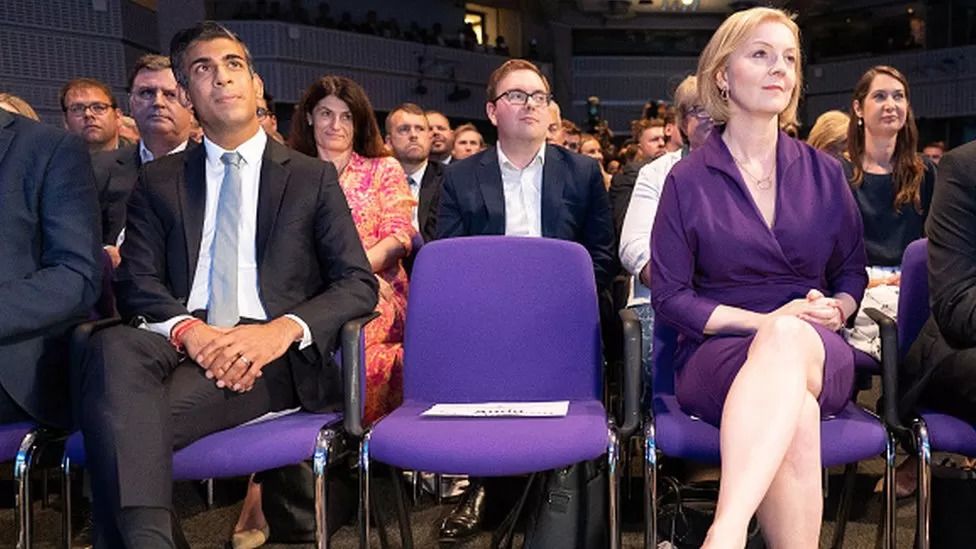 Ms Truss defeated former Chancellor Rishi Sunak in a Tory leadership contest
Ms Truss defeated former Chancellor Rishi Sunak in a Tory leadership contest
Ms Truss modelled herself on former Prime Minister Margaret Thatcher. Her allies said that like the former prime minister, Ms Truss would be resolute in power; the lady wasn't for turning.
They made it clear she would make unpopular decisions and stick with them, whatever happened. Ms Truss wanted to be the new Iron Lady.
Within 48 hours came the first of a series of bold economic gambles, which went considerably further than almost everyone expected.
First there was the energy support package, which promised to cap the unit price for two years. For a candidate who had said there would be no more handouts, political reality had hit and the cheque book had been opened.
But within hours of being in Downing Street, politics had to take a back seat.
Ms Truss was told in the House of Commons that the Queen was ill. By the end of the day, a prime minister in office for two days was on the steps of Downing Street paying tribute to the longest-serving monarch in British history. Over the next few days, the government's focus was firmly on national mourning.
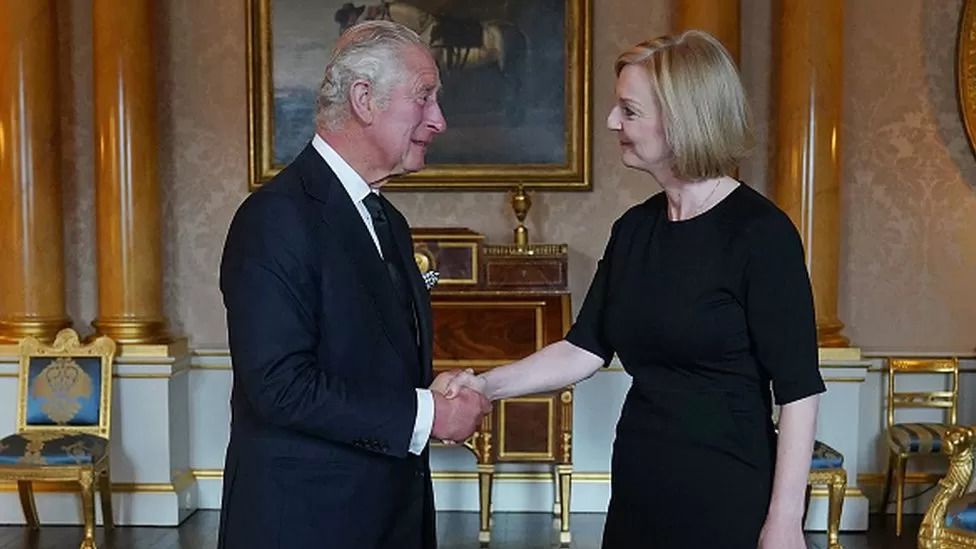 The late Queen Elizabeth II was succeeded by her son, King Charles, two days after Ms Truss took office
The late Queen Elizabeth II was succeeded by her son, King Charles, two days after Ms Truss took office
After the Queen's funeral though, Ms Truss had to make up for lost time. She went on her first and only major diplomatic trip to the United Nations in New York, where she told broadcasters she was prepared to make difficult decisions in pursuit of economic growth.
On her return came the economic "big bang" she had been thinking about for years.
Her mini-budget - which was anything but mini - was the most radical in recent history; taxes were slashed, particularly for the higher paid. It would be funded by borrowing, despite warnings that could make inflation worse.
Senior figures in Number 10 believed they were about to launch a bright new era for the UK economy. Economic libertarians had their chance and they were determined to take it.
One told me: "Something different and bold needs to be done."
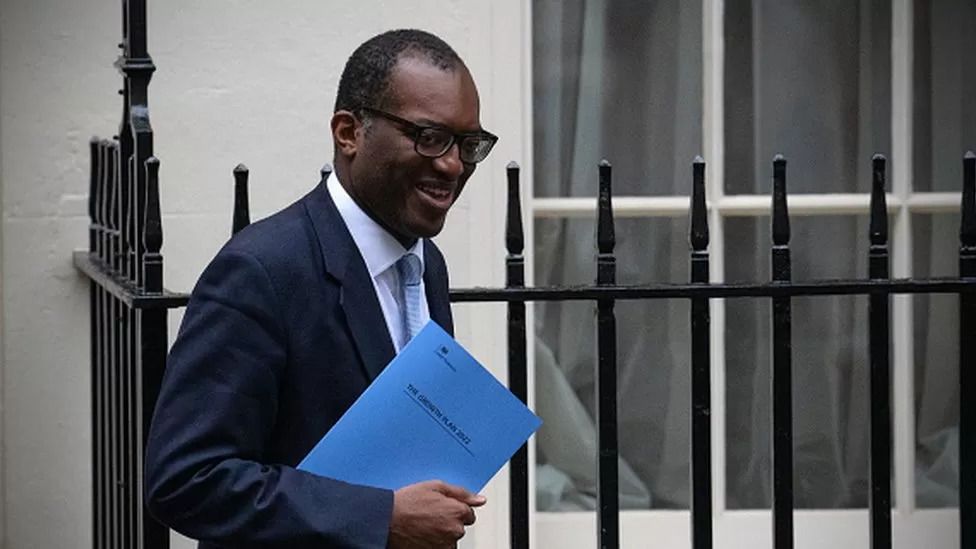 Ms Truss's mini-budget was announced by her former Chancellor Kwasi Kwarteng
Ms Truss's mini-budget was announced by her former Chancellor Kwasi Kwarteng
Team Truss believed the markets would give the country space to restructure the economy. But within days - it became clear they had been wrong and the wheels started to fall off their economic experiment.
There were few details on how the government would fund the package, which left financial markets reeling, sent the pound plummeting, and forced the Bank of England to bail out pensions funds.
Tory MPs began to panic quickly. Within 72 hours of the mini-budget, many were making it clear that they were unhappy. Conservative MPs spoke privately of the government already provoking a political crisis.
Over the coming week, that would only increase until a full-blown crisis emerged at the Conservative Party conference in Birmingham. By the time Ms Truss arrived, it was clear there was a significant rebellion brewing on the decision to scrap the 45p top rate of tax.
Under pressure from backbench MPs, Ms Truss buckled. The same day, she told the BBC she would not change her mind - she did. She sent the chancellor out to explain the decision.
The U-turn was supposed to show that Ms Truss was listening. Number 10 believed it would allow rebellious MPs to move on. Instead, it did the exact opposite; rebels smelled blood. "It feels like the last days of Rome," remarked one former minister.
Over the next few weeks, Ms Truss's authority collapsed completely.
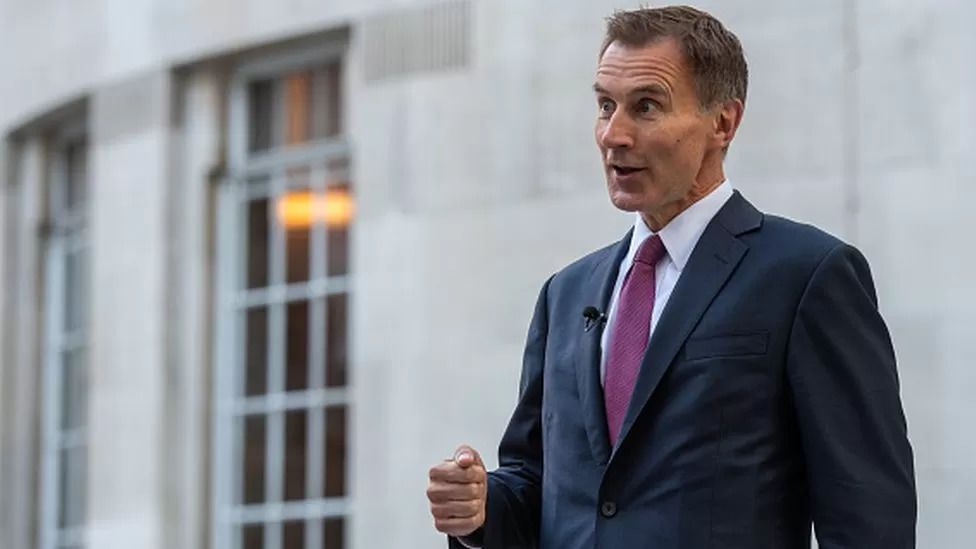 Jeremy Hunt junked most of Ms Truss's economic plan
Jeremy Hunt junked most of Ms Truss's economic plan
She sacked her chancellor and scrapped a plan to keep corporation tax down. She appointed Jeremy Hunt to run the Treasury - someone who had backed Mr Sunak.
Mr Hunt decided on Saturday that the whole economic strategy had to go and told the prime minister at Chequers the next day. Weakened by events, she had little option but to agree.
"Jeremy Hunt is de facto PM," said one MP, speaking for many. "I don't see the point of her," added another.
By Sunday, the wheels were in motion for the end of Ms Truss's premiership. The BBC contacted many MPs and the mood was dark. Nobody was suggesting Ms Truss's authority would recover. One Ms Truss loyalist told me: "We've lost".
A senior party figure added as the mood turned: "People know that this is over. It's a question of how and when."
There was however, still a ray of hope for Ms Truss.
Some MPs were nervous about bringing the prime minister down without having a unity candidate to replace her. They feared it would mean even more chaos, which nobody would be able to control.
Some of the PM's internal critics urged caution. As one senior figure put it to me: Ms Truss's future might be decided by what her opponents can't do at this stage.
But what followed was even more humiliation.
On Monday, Mr Hunt took control and junked the economic plan. The prime minister was widely ridiculed for not speaking herself in Parliament. She dodged an urgent question from the Labour leader, then sat beside the chancellor briefly as he ripped up her economic plan in the Commons.
A couple of days later, the home secretary resigned over a breach of the ministerial code - but launched a blistering attack on the prime minister and her programme.
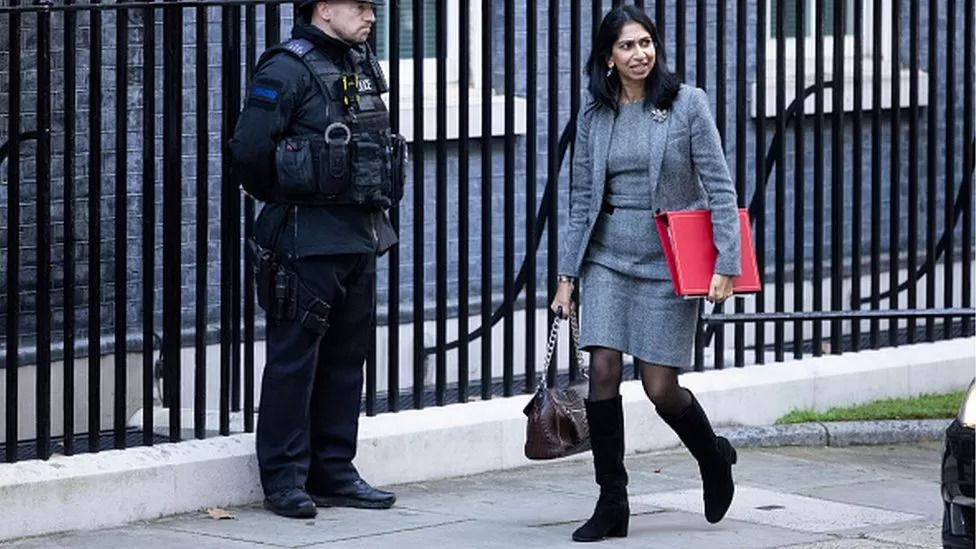 Suella Braverman launched a withering attack on Ms Truss in her resignation letter
Suella Braverman launched a withering attack on Ms Truss in her resignation letter
There was trouble brewing on the right of the party, which had campaigned so vigorously for Ms Truss over summer. And yet Prime Minister's Questions had ended without disaster, buying Ms Truss at least a few more hours.
The final straw for Conservative MPs was the chaos over a vote on banning fracking. MPs were told it was confidence vote - that by not voting with the government, they were saying they didn't want it to continue. Then they were told it wasn't a confidence issue. Then they were told it was - and those who rebelled would be disciplined.
It all meant that by Thursday morning, the Conservative Party had decisively turned. When the prime minister summoned Sir Graham Brady, the chairman of the 1922 committee, to test the mood of the party, it was game over.
The new economic era was over. Twenty-four hours after saying she was a fighter, she had resigned. Ms Truss had failed, her "big bang" plan in tatters.
Turmoil has defined Ms Truss's time in office. But it has also helped define 2022. In less than one year, there have been four chancellors, and by next week there will have been three prime ministers.
The Conservatives now have to choose a leader they think can bring stability. Whoever it is will want to last a lot longer than Ms Truss.










